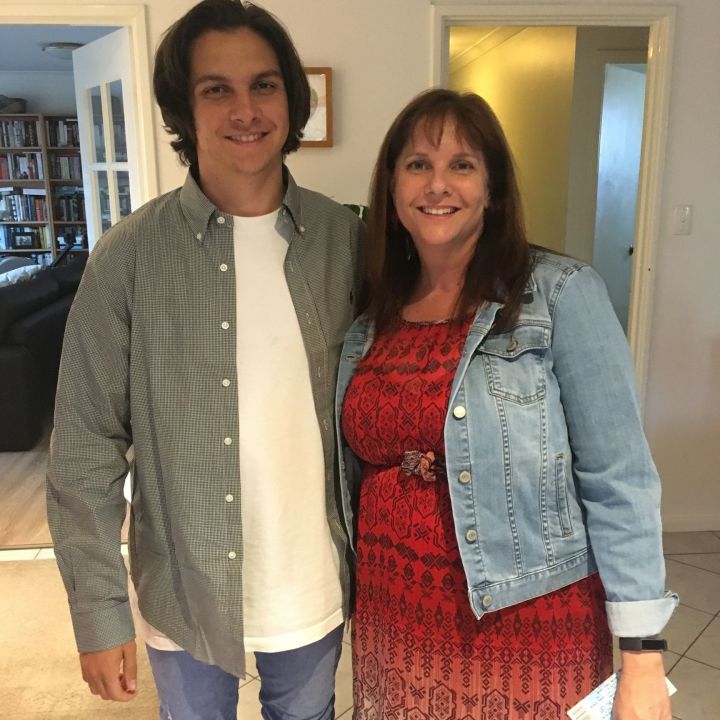Darcy Garlett is a worldly and proud Wadjuk Noongar living in Perth. Currently completing his Year 12 studies in media, mathematics, English and economics, he is hoping to begin a Bachelor of Anthropology/Sociology at university next year. The unwavering support he has received from his parents throughout his schooling life has “built a scaffold” for further education and career advancement. He spoke to Inclusive Australia after he shared a moving speech – entitled ‘Always was Always will be’ – which he wrote for an English assessment earlier in the year. The speech encapsulates and aims to bring attention to some of the most important social issues facing Aboriginal Australians today, and felt like a timely way to “get things off [his] mind” following the Black Lives Matter protests.
Growing up, Darcy says his father would teach him local language through stories which helped illuminate and visualise the history of his people. His speech is guided by descriptions of these same stories, like the giant Wargyl serpent carving the Swan River in its trails from mountain to sea, to reinforce Aboriginal Australians’ rich history and connection to country. He feels lucky to have been taught these stories from a young age and laments the fact that most of his friends are unaware of Aboriginal history, which points to a major flaw in the education system. Above anything, Darcy wants his speech to encourage all Australians to learn more about Aboriginal people, their history and the issues facing them today, because “how can we celebrate a people that most Australians don’t even know?”.
Continue reading below for Darcy’s full speech.
--------------------------
Always was Always will be – by Darcy Garlett
NAIDOC week 2020
Ladies and gentlemen, I am honoured to be here at Kings Park on the first day of this year’s NAIDOC week. This year’s theme is ‘always was always will be’ Aboriginal land. It is a week of great importance for Western Australia. This week is dedicated to celebrating the rich culture of the very first Australians. But how can we celebrate a people that most Australians don’t even know?
This is about self-knowledge. About how well we know the land we stand on, How well we know our history. Kings Park is a good place to contemplate these things. It has been for over 70000 years, a sacred place for many of my people. The Nyoongar people. Behind me is a stunning view of Perth. Of the Swan River, Of our grand city, which symbolises all of the things we love about this place we call home. To this day, it holds a different meaning for Aboriginal people. It stands as a reminder of the European settlers who came here just 191 years ago. A reminder that the place my people called home was taken over and changed. A reminder of the pain and suffering that our ancestors endured. Injustice flows through the roots of this country like blood through veins. And its poison has spread and infected the first Australians — the people to whom the most injustice has been done. Many of you may have heard about the relationship between Aboriginal people and the land. About how we have always shown great respect for it, About how we have seen it not as an asset, but as a part of us, and us a part of it. Everything in this country has a story, and I would like to quickly tell you all the story of how the great river behind me was created.
According to my people, the Swan River or ‘Derbarl Yerrigan’ was formed when a giant serpent called the Wargyl travelled from the hills to the ocean. In its wake it shaped the land including many of the Perth hills and most importantly, it carved out the Swan River, filling it with water as it broke the divide between land and sea. We are, in fact, standing on one of the Wargyl’s many piles of earth that he carved away. Another story is that of Tjunta, a female dreaming spirit. My people say that when a lock of her long white hair fell from the sky, it landed and became the sandbar at Point Walter or ‘Jennalup’. The deepest part of the river, Blackwall Reach, was where she took her last step before taking her place among the stars. The milky way is her hair, and stars are all her children.
These stories shaped the way Aboriginal people think about and understand this country. They have helped us to survive here for more than 70000 years. But this country has changed, The settlers brought diseases and alcohol, And took the traditional lands and destroyed the traditional way of life, And committed the massacres, And took the children away from their mothers, And practiced discrimination and exclusion, And failed to imagine these things being done to them, But we haven’t given up. We have survived as the oldest continuing culture on Earth. When the Europeans colonised this country, there was one simple question which was never asked: How would I feel if this was done to me? It might help now if we all imagine ourselves dispossessed of the land we lived on for over 70000 years. If we imagined that our culture was the oldest in the world — and we were told it was worthless. If we imagined that we resisted the invaders, and suffered and died for our land, our people, our way of life — only for it to be written in history books that we gave up without a fight. This is not imaginary for Aboriginal people. This is reality. A reality we did not get a say in. A reality in which our culture was torn away from us A reality stricken with the results of ongoing intergenerational trauma, But this fight has not been won. The damage it has caused can be healed, and in time, I know we can rebuild. It starts with an understanding. A recognition, that where we are standing always was and always will be, Aboriginal land.


Let us know!

